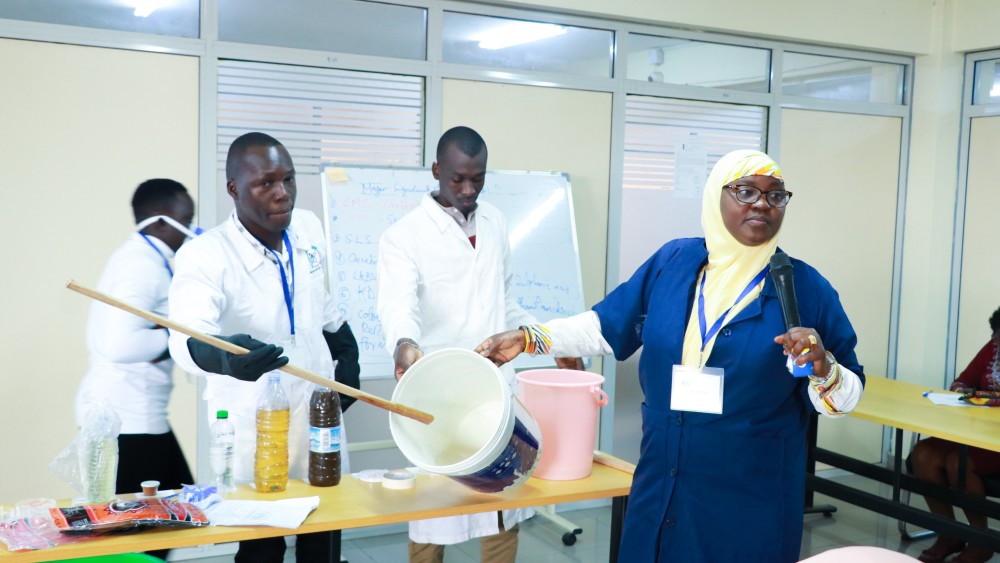
Jul
CoEEI Holds Hands-on Training on Liquid Dishwash Production
July 24, 2024, 3:55 pm
| Title: | Design and Implementation of a DC to AC Power Electronics-Based Inverter that Produces Pure Sine Wave Output for Critical Engineering Applications |
| Author(s): | Mubeezi Conceptar1, Kalyankolo Umaru2, Val Hyginus Udoka Eze1,3*, Okafor O. Wisdom4 |
| Year | 2024 |
| Publisher: | International Journal of Recent Technology and Applied Science |
| URI: | https://publications.kiu.ac.ug/publication-page.php?i=design-and-implementation-of-a-dc-to-ac-power-electronics-based-inverter-that-produces-pure-sine-wave-output-for-critical-engineering-applications |
| File: | |
| Keywords: | Alternating Current Direct Current Microcontroller MOSFET Sine Wave. |
Power inverters play a crucial role in the field of engineering,
particularly in applications where power stability is imperative. In devices
such as Uninterruptible Power Supplies (UPS), the conversion of raw power
to DC, subsequent filtering, and inversion to AC are executed through pure
sine wave inverters. These inverters exhibit remarkable stability, making
them ideal for powering sensitive equipment like data switches and Remote
Terminal Units (RTUs). This study delves into the intricate process of
converting DC power into a pristine sine wave signal. The heart of this
power conversion lies in the utilization of the KA3525A integrated circuit
(IC) in conjunction with MOSFETs of the PN55 series, supported by
capacitors and resistors for effective power filtration. The KA3525A, a
monolithic IC, encompasses all essential control circuits for a pulse width
modulating regulator. Within this IC, a voltage reference, error amplifier,
pulse width modulator, oscillator, under-voltage lockout, soft start circuit,
and output driver collaborate seamlessly. The MOSFETs function as
switches, synchronized with the oscillating signal from the KA3525A IC.
This coordination, combined with the filter and other signal conditioning
units, enables the conversion process. The design achieves the conversion of
raw power into a stable pure sine wave signal of 170V AC at the H-bridge
terminals, demonstrating the success of the designed approach

Kampala International University,
Box 20000, Ggaba Road, Kansanga, Kampala